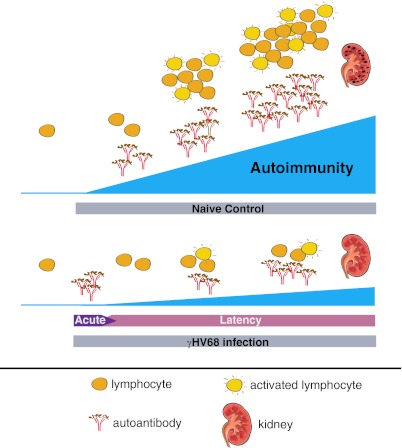Fig. P1.
Effects of γHV68 infection on autoimmunity in lupus-prone mice. (Upper) Lupus-prone mice develop a lupus-like autoimmune disease characterized by the presence of circulating autoantibodies and lymphocyte (B-cell) proliferation and activation. Autoimmunity exacerbates over time in these mice, ultimately causing kidney disease and death. (Lower) γHV68 acute infection in mice results in the production of a small number of autoantibodies, which disappear at the beginning of the latent phase of infection. However, latently infected, lupus-prone mice are largely protected from disease manifestations for the rest of their lives, displaying strongly reduced levels of autoantibodies and of activated and nonactivated lymphocytes. Importantly, infection prevents the development of kidney disease, preserving organ function.

